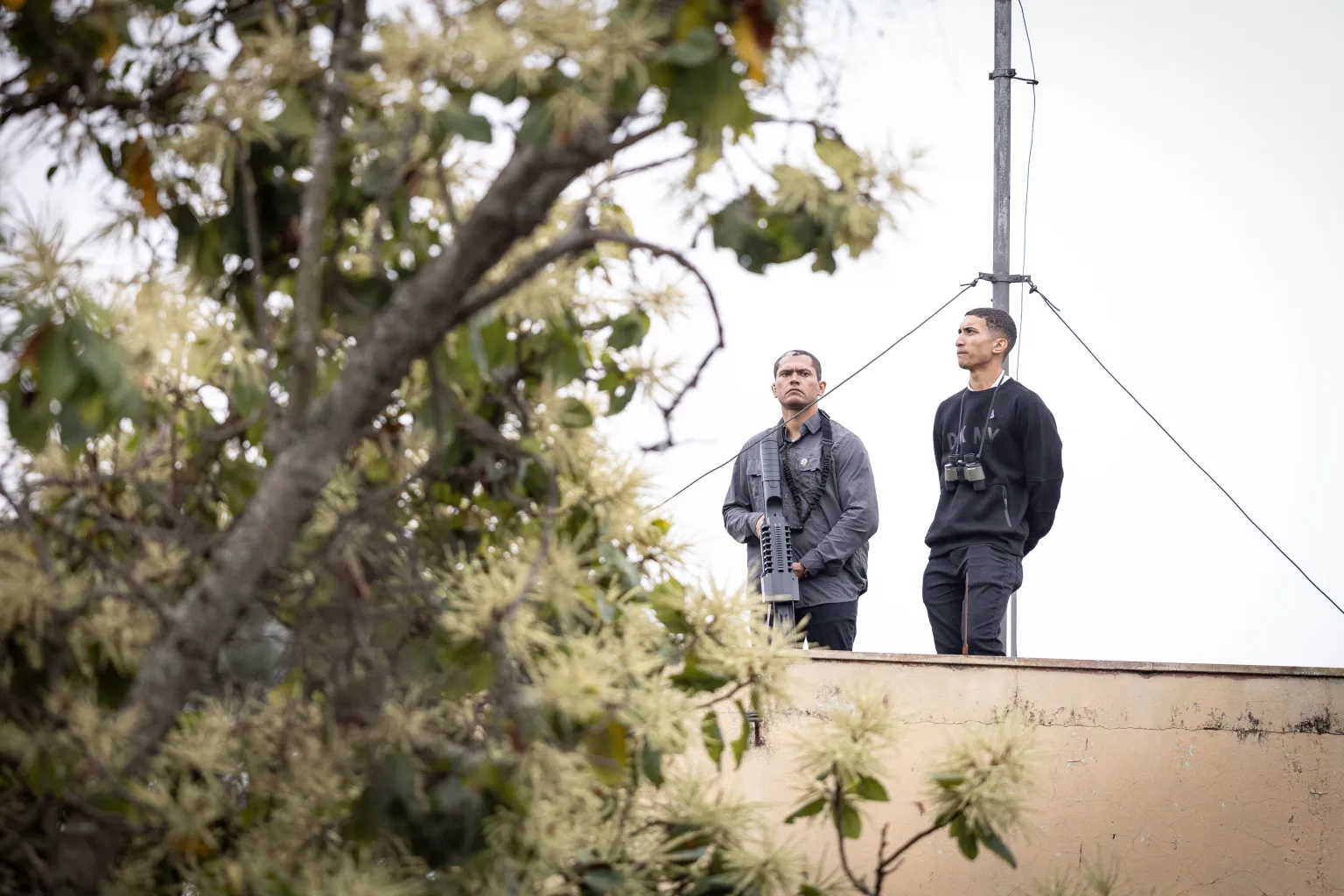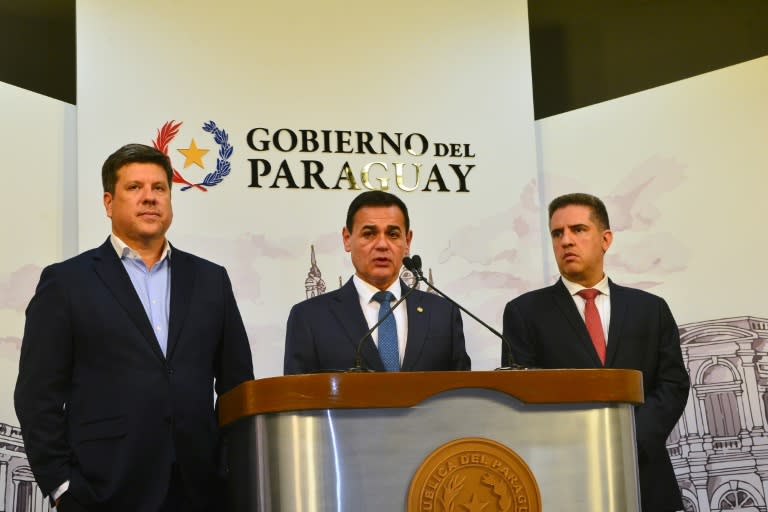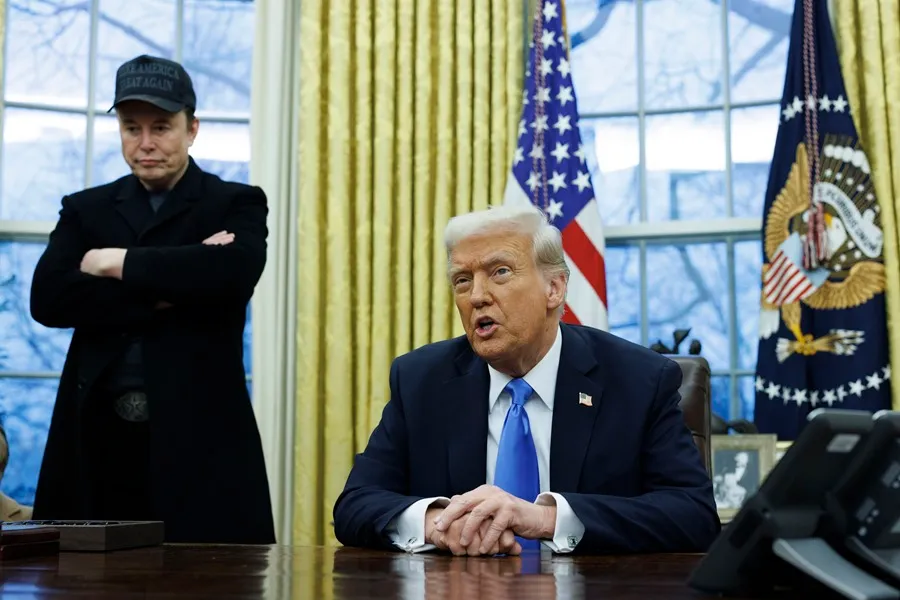International
The campaign for the municipal elections in Brazil leaves a trace of violence not yet clarified

The campaign for the municipal elections that Brazil celebrates this Sunday has left a trail of violence with the murder of up to fourteen candidates since the beginning of the year, although the political nature of those attacks is not yet fully clarified.
The data is contained in a report prepared by the Tierra de Derechos institute, a non-governmental organization that studies political violence in Brazil and that, during this year, identified 145 cases of attacks, threats and aggressions directly or indirectly associated with the electoral process.
Among them is the blow with a chair that the center-right candidate José Luiz Datena instold to the far-right Pablo Marçal in an electoral debate in São Paulo, which had a great media impact because it was the largest city in the country and the aggression was broadcast live on television.
But there is also the murder of Marcelo Oliveira, mayor of João Dias, who aspired to re-election in that municipality of 2,000 inhabitants in the interior of the state of Rio Grande do Norte, shot dead in the middle of the street with his father in August.
Oliveira was one of the fourteen candidates for mayor or councilor murdered since the beginning of this year for alleged political reasons, although the police authorities have not yet reached conclusions in any of those cases.
Corruption and organized crime add to violence
According to the Federal Police, the campaign has also left some 2,200 investigations open for suspected electoral crimes, which include attempts to “buy votes” and possible corruption cases, among many others.
The cases of violence have not been directly linked to the polarization that dominates the country between the progressivism embodied by President Luiz Inácio Lula da Silva and the far right led by his predecessor, Jair Bolsonaro.
According to the authorities, they have been associated with local disputes, which are more acute in the small municipalities of the interior, where organized crime has more penetration.
Among the groups suspected of financing candidacies is the First Command of the Capital (PCC), which emerged three decades ago in the prisons of São Paulo and whose tentacles are now expanding throughout the national territory and reach some neighboring countries.
The numbers of the municipal elections in Brazil
The elections will be held in 5,569 cities, in which 500,183 tables are installed to elect the new mayors and members of the municipal assemblies.
The only one of the 27 regional capitals that will not go to the polls is Brasilia, which is part of the Federal District and has a differentiated administrative regime.
In the 103 municipalities with more than 200,000 voters, there will be a second round on October 27 if none of the mayoral candidates exceeds 50% of the support.
There will be a total of 155,912,680 voters, represented by 52% by women.
Throughout the country there are 15,452 candidates for mayor, but with minimal female participation, since there are 13,128 men and 2,324 women.
Gender disparity also appears in the candidates for councilors. There are 277,869 men and 150,773 women.
The largest polling stations are the cities of São Paulo, with 9.3 million voters, Rio de Janeiro (5,009,373) and Belo Horizonte (1,992,984).
To ensure peace of mind, all state security forces will be mobilized, as well as 23,000 members of the Armed Forces, who will also participate in the custody of the 571,024 electronic ballot boxes that voters will use.
International
Paraguay summons Brazilian ambassador over Itaipú espionage scandal

Paraguay summoned the Brazilian ambassador in Asunción on Tuesday to demand “explanations” and called its own representative in Brasília for consultations following Brazil’s acknowledgment of an espionage operation. The Brazilian government, led by President Luiz Inácio Lula da Silva, attributed the operation to the previous administration.
The surveillance effort aimed to uncover Paraguay’s position in now-suspended negotiations with Brazil regarding the pricing of electricity from the binational Itaipú hydroelectric plant, according to reports in the Brazilian press.
The Brazilian government “categorically denied any involvement in the intelligence operation,” stating in a Foreign Ministry communiqué on Monday that the espionage was carried out under former President Jair Bolsonaro’s administration (2019-2023).
“The operation was authorized by the previous government in June 2022 and was annulled by the interim director of the (state intelligence agency) ABIN on March 27, 2023, as soon as the current administration became aware of it,” Brazil’s government asserted.
Paraguay’s Foreign Minister Rubén Ramírez announced that Brazilian Ambassador José Antonio Marcondes de Carvalho was summoned “to provide detailed explanations” regarding the operation. Additionally, Paraguay recalled its diplomatic representative in Brasília “to report on aspects related to the intelligence activity conducted by Brazil regarding Paraguay’s government affairs.”
International
Elon Musk to step down as government advisor, per Trump insiders

President Donald Trump has informed his inner circle that Elon Musk will be stepping down from his role as a government advisor, according to a report by Politico today.
Citing three individuals close to Trump, Politico states that the president is pleased with Musk’s leadership at the Department of Government Efficiency (DOGE), where he has implemented significant budget cuts. However, both have agreed that it is time for Musk to return to his businesses and support Trump from a different position outside the government.
A senior administration official told Politico that Musk will likely maintain an informal advisory role and continue to be an occasional visitor to the White House. Another source warned that anyone thinking Musk will completely disappear from Trump’s circle is “deluding themselves.”
According to the sources, this transition is expected to coincide with the end of Musk’s tenure as a “special government employee,” a temporary status that exempts him from certain ethics and conflict-of-interest regulations. This 130-day period is set to expire in late May or early June.
International
Milei vows to make Argentina so strong that Falkland Islanders “choose” to join

Argentine President Javier Milei reaffirmed his country’s claim over the Falkland Islands (known as the Islas Malvinas in Argentina) and praised the role of the nation’s armed forces during a ceremony marking the “Veterans and Fallen Soldiers of the Malvinas War Day,” commemorating 43 years since the 1982 conflict with the United Kingdom.
Argentina continues to assert sovereignty over the islands, arguing that Britain unlawfully seized them in 1833.
“If sovereignty over the Malvinas is the issue, we have always made it clear that the most important vote is the one cast with one’s feet. We hope that one day, the Malvinas residents will choose to vote with their feet and join us,” Milei stated.
“That is why we aim to become a global power—so much so that they would prefer to be Argentine, making deterrence or persuasion unnecessary. This is why we have embarked on a path of liberation, working to make Argentina the freest country in the world and once again the nation with the highest GDP per capita on the planet,” he added.
-

 International4 days ago
International4 days agoSon of journalist José Rubén Zamora condemns father’s return to prison as “illegal”
-

 International4 days ago
International4 days agoMiyazaki’s style goes viral with AI but at what cost?
-

 Central America3 days ago
Central America3 days agoPanama police clarifies that Interpol alert for Martinelli is still pending
-

 Central America2 days ago
Central America2 days agoU.S. Homeland Security Secretary urges Mexico to strengthen Guatemala border
-

 International2 days ago
International2 days agoTrump urges Putin to reach peace deal
-

 Central America2 days ago
Central America2 days agoPanama grants Martinelli 72-hour extension to travel to Nicaragua
-

 International3 days ago
International3 days agoDeportation flight lands in Venezuela; government denies criminal gang links
-

 International11 hours ago
International11 hours agoParaguay summons Brazilian ambassador over Itaipú espionage scandal
-

 Sports11 hours ago
Sports11 hours agoFilipe Luis debuts as coach in Copa Libertadores with Flamengo
-

 Central America8 hours ago
Central America8 hours agoGuatemalan police officer killed in mob riots over baby kidnapping
-

 International11 hours ago
International11 hours agoMilei vows to make Argentina so strong that Falkland Islanders “choose” to join
-

 Sports11 hours ago
Sports11 hours agoVenezuela investigates 18 baseball players seeking asylum in Spain
-

 International11 hours ago
International11 hours agoICE agent’s arrest of suspect sparks controversy in Boston
-

 International11 hours ago
International11 hours agoElon Musk to step down as government advisor, per Trump insiders
-

 International11 hours ago
International11 hours agoÓscar Arias: Trump’s trade policies are a step backward















